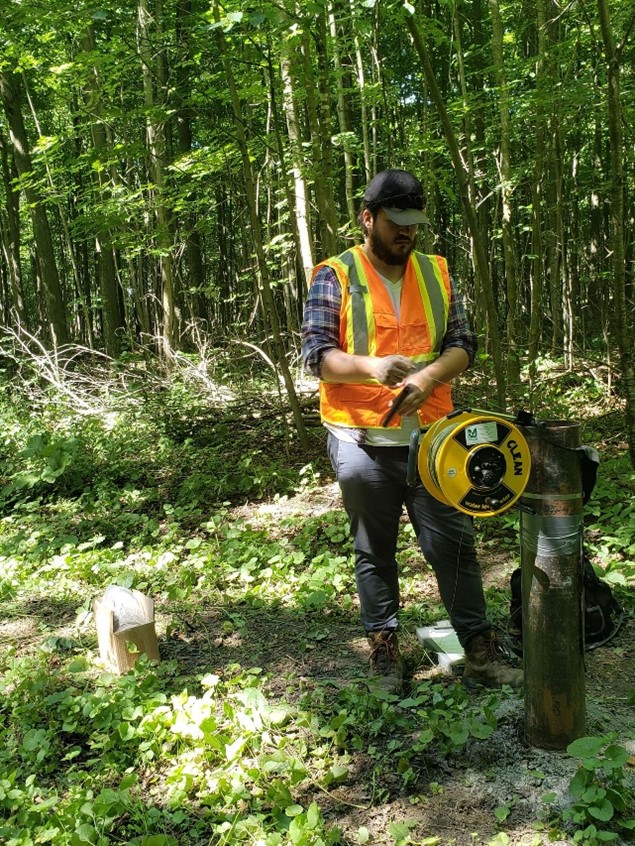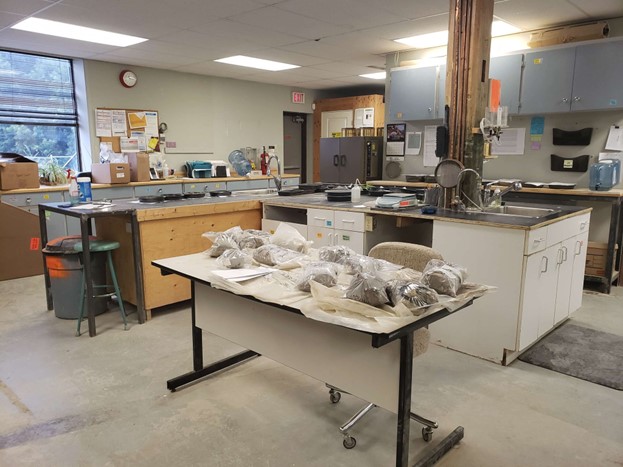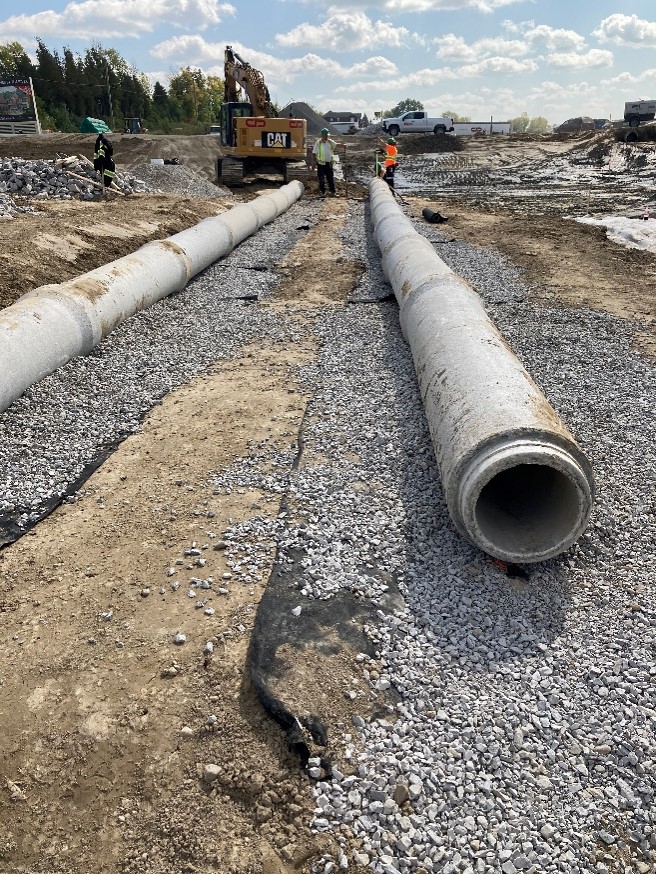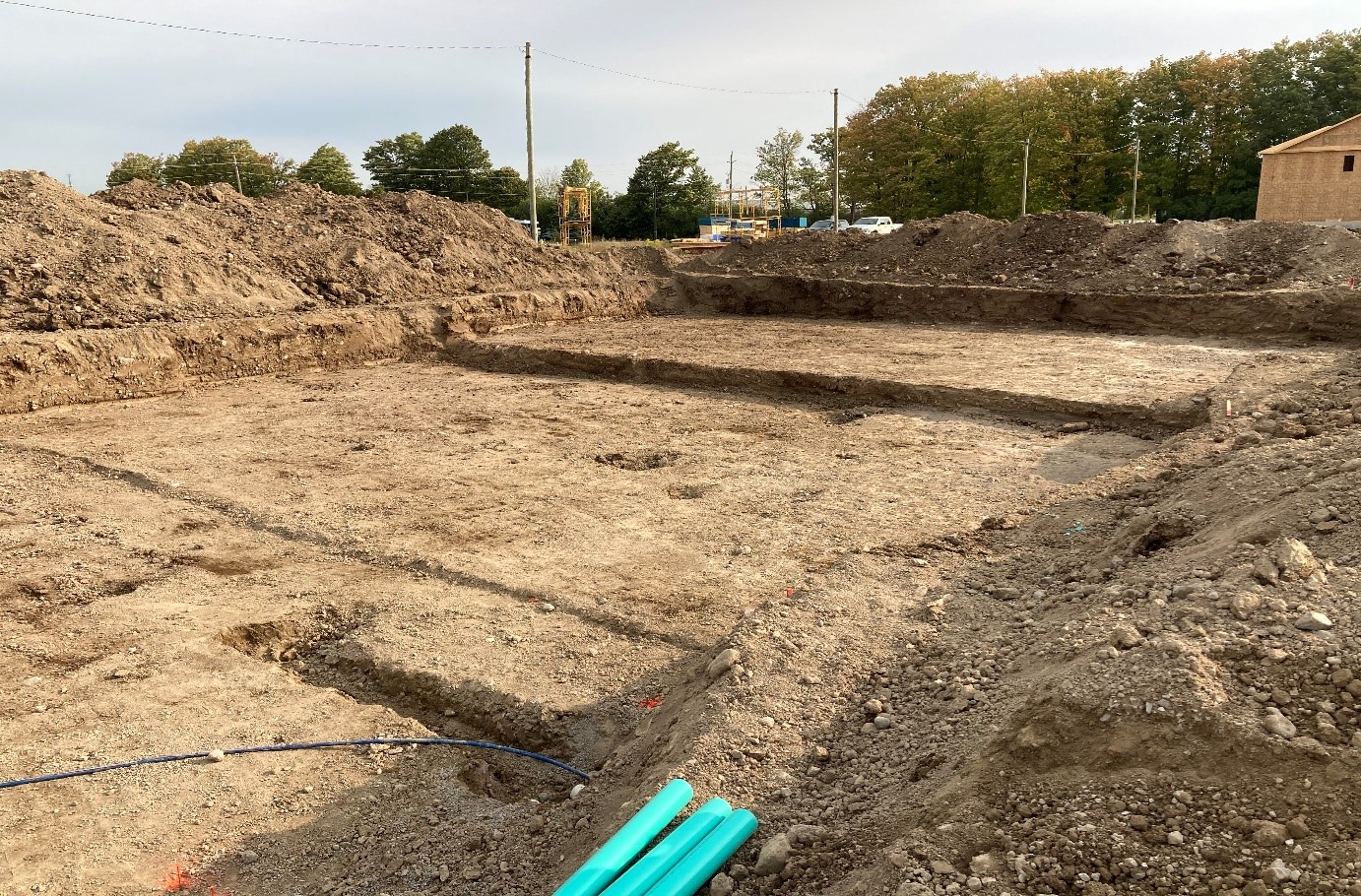Brad Wright – Geotechnical Technician

My co-op term was spent at the engineering consultancy firm WSP in their Peterborough office. My role at the company was officially “Co-op student – geotechnical” however the equivalent role was geotechnical technician. I found my opportunity to be an excellent learning experience overall, the feedback and training were both executed at a high level; however due to the pandemic I missed one month at the beginning of my term, though this was made up for when we reached the school year and I was offered a part-time contract extension. Also due to the pandemic several project managers were leaving the company at the time, which made scheduling a little bit erratic and last-minute. This made things a little stressful at times while doing both remote work and having to leave at the drop of the hat, but it was always a worthwhile project and I never felt like that time was being wasted.
The work varied heavily, however the jobs I was asked to participate in mostly centered around materials testing. I underwent training in the use of a nuclear densometer, which involved becoming certified in the transportation of dangerous goods as well as the safe practice and use of a nuclear energy device. This was mainly taking the nuclear gauge to various sites to conduct ‘in situ’ density tests on present materials ranging from different types of aggregate to asphalt. I also was fortunate enough to receive my level 1 (CCIL) certification in concrete testing. The process involves a field testing of air, slump, and casting concrete cylinders for compressive strength testing later after a curing process. I also participated in several water well surveys, pump surveys and sampling projects that involved surface and groundwater. This involved driving to and from sites and collecting samples for laboratory testing, as well as conducting ‘in situ’ chemistry tests such as pH, turbidity, etc. I also performed pump tests to determine the hydrogeological properties of a site.


All these tasks, and the other investigations I did for construction projects (e.g. the Bobcaygeon swing bridge, suburb developments, hockey rinks, etc.) required accurate note taking and independent work. Field notes became very important and had to be both neat and legible as well as precise and detailed. I completed varying data sheets for different projects and types of fieldwork and tailored them to client requests. At the end of the day the notes are uploaded to the database and the digitized (sometimes by me) and are used as legal documents. Updating excel documents, writing reports, taking photos, and managing a shared drive, are all extra responsibilities taken on by every person in the office. Technicians were also expected to regularly spend some days per month in the lab doing various tasks from organizing and cleaning to running tests and equipment. All these responsibilities were overshadowed by a corporate structure for safety. Every field study and project required general safety guidelines as well as a field level risk assessment performed before the commencement of any fieldwork. It was a very broad scope of work to say the least and sometimes you are expected to be able to change gears immediately and do accurate, efficient tasks.



My favorite part of the job was the few times that were associated with geotechnical drilling and logging. I was able to observe some rock cores as well as split spoon soil samples and do some field logging and loved every aspect of it. If I were every to pursue further study and practice it would certainly be in the underground investigations work.
The co-op has provided so many opportunities to learn different aspects of the industry and figure out what I like, what I don’t like, and what is important to me from an employer. It’s also allowed me the interactions with other companies as well and see what the interactions and competition is like between all these companies that will hopefully want to hire me come spring/summer. It is certainly one thing to study and discuss the field and another to live it for 6+ months, and truly start to understand some of the facets of the industry were entering. Save all of the training and knowledge I’ve gained working the field, the co-op was worth it just to SEE the industry for the first time.
Once I’ve graduated, I plan to pursue a job that leads further into underground/geological investigations. I’ve already began applying to jobs and hopefully having my name being noticed at companies all over Canada that are looking for candidates with our specific skillset. I think my time at WSP will provide me with a lot of great experience and references for my resume, if not lead to a job offer down the road.